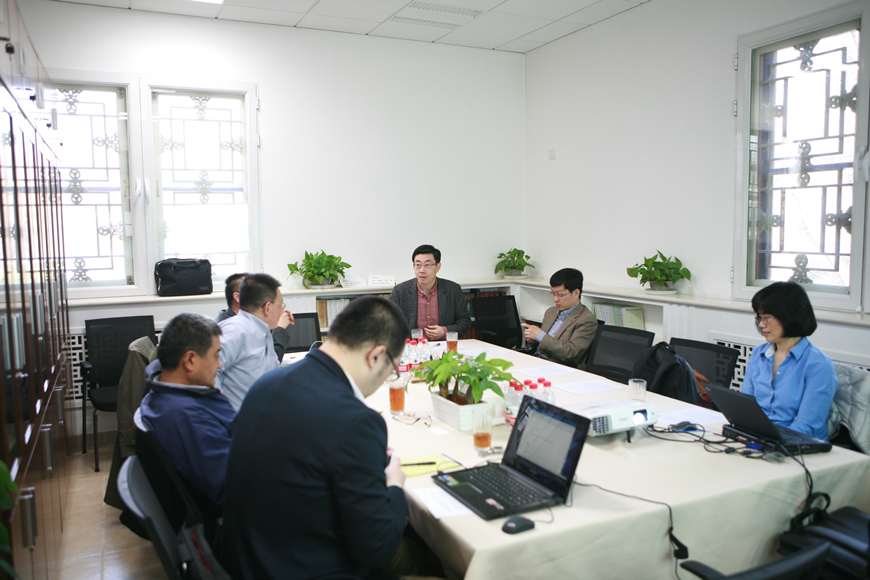
On April 5, 2016, Ms. Wang Hongying, Associate Prof. of the Department of Political Science, University of Waterloo in Canada, Research Fellow of Centre for International Governance Innovation, held a symposium at the Institute of International and Strategic Studies (IISS), Peking University (PKU) on issues, such as the internationalization of RMB, China's economic globalization and China's participation in global financial governance and exchanged views widely and frankly with faculties of IISS and the School of International Studies (SIS), PKU. This symposium was hosted by Yu Tiejun, Vice President of IISS. Gui Yongtao, Assistant President of IISS and scholars from SIS, PKU, such as Fan Shiming, Zha Daojiong, Zhai Kun and Chen Shaofeng attended the symposium.
Prof. Wang Hongying firstly introduced the main content of Enter the Dragon: The main contents of China in the International Financial System, a book she was a co-editor. The book indicated that the economy size of a country and its representation in international financial institutions was not equivalent to the country’s influence in international financial fields; it also pointed out that China hoped for a reform overall rather than overthrowing the existing international financial order. Finally, she believed that the future interaction between China and the international financial system depended not only on the pace of the Chinese domestic financial reform and economic reform, but also on the degree of acceptance of the international community to China's rise as a major power in finance.
In the discussion session, Dr. Fan Shiming pointed out that given the complex experience of financial liberalization in developing countries, the prospect of financial openness in China's domestic society was not optimistic; Prof. Zha Daojiong noted that the degree of internationalization of the RMB not only depended on RMB’s functions of buyer credit and financing bonds, but also was connected with the structure of international trade and the stability of RMB exchange rate; Prof. Zhai Kun expressed optimism on prospect of private enterprises to develop new innovative economic model through One Belt and One Road Initiatives.

